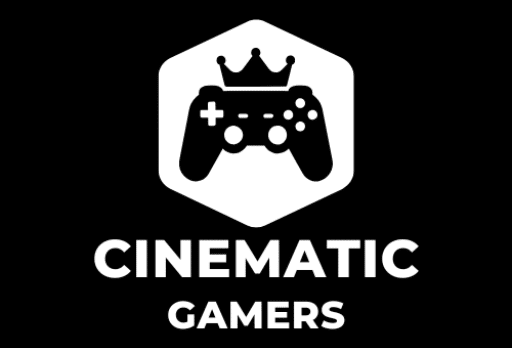Discover the benefits of gaming and how long video games offer healthy ways to release dopamine without falling into addiction. Learn how to play smart and stay balanced.
Why the Benefits of Gaming Go Beyond Entertainment
In today’s fast-paced world, most of us are guilty of chasing quick fixes, whether it’s endlessly scrolling through reels, inhaling a bag of chips, or binge-watching cringe TV shows until the “Are you still watching?” message pops up. But here’s the twist: instead of these empty dopamine hits, gaming can actually help us regulate our brain chemistry in meaningful ways. But only when you play the right kind of games, and not overdo it! The benefits of gaming are not just about fun or killing time; they can include motivation, emotional resilience, focus, and even stress relief. And when you do it wisely, video games can do what self-help books and productivity hacks often fail to deliver, lasting balance in our reward systems.
Dopamine Done Right: Healthy Ways to Release Dopamine Through Gaming
Let’s start with the science. Dopamine is the brain’s “feel-good” neurotransmitter, released when we achieve something meaningful. Whether you finish a tough workout, ace a project, or finally beat a boss fight after 12 attempts, dopamine makes you feel motivated and accomplished. The key difference between gaming and quick dopamine sources like scrolling TikTok is that games make you earn it. You don’t get that rush without actually doing something.
This is why gaming can be one of the healthiest ways to release dopamine. Unlike binge eating or mindless browsing, games encourage active participation, effort, and persistence. That feeling you get when the “Achievement Unlocked” pops up isn’t just fun, it’s your brain rewarding you for progress. And unlike cheap dopamine, the benefits of gaming actually reinforce habits like patience, problem-solving, and determination.
Long Video Games and the Benefits of Gaming for Patience and Focus

Here’s where it gets interesting: when we say gaming can be beneficial, we don’t mean all games. Yes, not all games impact dopamine in the same way. Quick mobile titles like endless runners may offer you instant and endless thrills, but they rarely give long-term satisfaction. On the other hand, long video games like The Witcher 3, Persona 5, and Elden Ring are dopamine’s best friend. Why? Because they reward delayed gratification.
When you invest 50 to 100 hours into exploring vast worlds, completing complicated quests, and overcoming real challenges, you’re not just entertaining yourself, you’re training your brain to appreciate patience and persistence. The benefits of gaming become crystal clear here: you’re learning that meaningful rewards take time and effort. It’s like slow-cooked food compared to instant noodles. One fills your soul; the other just fills your stomach.
Long video games also reduce the crash that comes with short dopamine spikes. Instead of leaving you drained after a quick hit, they provide a steady flow of motivation. Each quest completed, each skill mastered, and each boss defeated adds to a longer arc of satisfaction. If anything, they’re digital boot camps for patience. Plus, if you play memorable story-based games like Witcher 3, its plots and its characters will stay with you for years.
The Benefits of Gaming for Mental Health and Emotional Growth
Now let’s talk mental health. The benefits of gaming are more than just chemical, they’re emotional too. Story-driven titles like Red Dead Redemption 2 or Life is Strange immerse you in narratives that make you feel deeply connected to characters and choices. That emotional engagement enhances empathy and resilience.
Then there are challenge-based titles like Dark Souls or Elden Ring. These games are notorious for being brutal, but here’s the twist: every failure becomes a lesson, and every victory feels like climbing a mountain. The dopamine rush when you finally beat a boss after hours of struggle is unmatched. It’s not just “yay, I won,” it’s “holy hell, I survived, and I’m stronger for it.” That kind of tedious process builds resilience and discipline that often carries into real life.
A large study of nearly 2,000 kids found that those who played video games for three or more hours a day actually scored better on tests of memory and self-control than non-gamers. The research, published in JAMA Network Open, analyzed data from the long-term Adolescent Brain Cognitive Development Study. Backed by the National Institutes of Health, this study suggests gaming may sharpen the brain in ways many people don’t expect.
So yes, while gaming is entertaining, the benefits of gaming include mental toughness, emotional growth, and even improved focus. Not bad for something people still dismiss as “just playing games.”
Avoiding Addiction: Healthy Ways to Release Dopamine Without Overdoing It
Of course, not everything about gaming is sunshine and power-ups. Dopamine is a double-edged sword. Just as it can motivate and reward, overstimulation can lead to dependency. This is especially true with games that constantly shower you with rewards, think loot boxes, mobile gacha mechanics, or titles designed to keep you glued for “just one more level.”
The trick is to use gaming as one of many healthy ways to release dopamine without letting it dominate your entire lifestyle. Here are some practical tips to avoid falling into addiction while still enjoying the benefits of gaming:
Set boundaries: Decide how many hours you’ll play in a day, and stick to it. Your brain (and your sleep schedule) will thank you.
Mix it up: Balance gaming with exercise, socializing, and hobbies. A jog or gym session also releases dopamine, just without the boss fights.
Choose games wisely: Focus on long video games or story-driven experiences rather than endless grind loops. These provide healthier dopamine pathways.
Play for growth, not escape: Use gaming as a tool to learn patience, strategy, and focus, not just as a way to avoid real-life challenges.
When played responsibly, the benefits of gaming remain positive and fulfilling. It’s only when moderation is ignored that the line between hobby and addiction starts to blur.
The Benefits of Video Games When You Play Smart
So, what’s the takeaway? The benefits of gaming, especially long video games with a story or instense combat, extend far beyond simple entertainment. By choosing the right types of games, ones that emphasize patience and progress, players can enjoy healthy ways to release dopamine that boost motivation, emotional resilience, and focus.
Yes, addiction is a real risk, but balance is the magic word. Gaming should be one of many tools in your life’s toolbox, not the only one. Whether you’re slaying monsters in The Witcher 3, unraveling mysteries in Persona 5, or facing impossible odds in Dark Souls, remember this: you’re not just playing for fun. You’re training your brain to value persistence, delayed gratification, and emotional strength.
And if anyone ever tells you gaming is a waste of time or a kids’ hobby? Just smile, because you know the truth, the benefits of gaming are wired straight into your brain chemistry, one healthy dopamine hit at a time.



